Source:

BUSINESS DAY TV: ‘You have to cope with the cards you are dealt’
by Transcript Service, March 10 2016,
2016-03-11 15:21:00.0
Transcript Service, March 10 2016
BUSINESS DAY TV: ‘You have to cope with the cards you are dealt’
IAN Kirk is Sanlam CEO.
BUSINESS DAY TV: Sanlam says last year was one of the toughest for business in and outside SA since the 2008 financial crisis and its warning of another difficult year as the economy weakens in SA and global uncertainty also continues to hamper equity markets and emerging-market currencies. It reported a 12% rise in diluted headline earnings per share (HEPS) for 2015 with net profit just 2.3% higher. That’s as strong performance at Santam and Sanlam Personal Finance offset weaker earnings from its emerging-markets businesses and Sanlam Investments.
Joining us on News Leader with more detail is the CEO Ian Kirk. I’m not sure if this is the way to start out as the new CEO with the first set of results that you present a number that the market doesn’t like and then you just build yourself up from there ... or you kind of takeover from Johan van Zyl who released a sparkling set of results in 2014, but clearly it wasn’t an easy year was it?
IAN KIRK: No and I believe Johan would be the first person to recognise that. I took over in the middle of last year and most of the issues had been around the table then. So I don’t think it’s an Ian thing or a Johan thing, it’s a Sanlam thing and he’d be the first one to say. So the cards are the cards that you’re dealt with. We have to deal with the challenging times and that’s certainly how I see it.
BDTV: Were you seeing these challenges reflected in your customers?
IK: Yes, personal disposable income is under pressure in SA, particularly in the middle-market segment. We’re quite fortunate in a way in the lower-income segment in SA, in that most of our book is in the public sector as opposed to the private sector. But retrenchments are obviously a risk in the commercial sector in the lower-income market ... and yes, the pressure is on. You can see it in the economy, it’s not so easy.
BDTV: You can see it in the difference ... there was an increase in new business volumes but the value of new business written was lower. Can you talk us through that ... what was behind that?
IK: The lower income in particular we were able to introduce some savings plans now which have got lower margin and that’s really been the impact, so it’s a mix issue in the lower-income market. But margins are under pressure. We’re still showing acceptable margins. We’re comfortable with that but certainly the pressure is on, it’s a competitive market and one has to write the business at acceptable margins. And also in the emerging-markets areas, in some territories, in Kenya we had some margin pressure as well. We’re comfortable, as I say, with the margins overall. But it’s come off a very high base. We had a number of years as you indicated, where we had an outstanding performance over and above our expectation. This year was just a bit tougher. So we say it was a satisfactory performance in challenging times, but certainly not at the level that we’ve experienced over the last three years. But it’s not a three-year game, it’s a 98-year-old business so you have to look at it....
BDTV: It looks like persistency has held up quite well in SA and you talk about the public sector being in that lower end of the market for you. In Zambia, though, it’s come under pressure, the persistency ... would you expect that to spill over into SA this year if things do get tougher.
IK: No, conditions are very different. What happened in Zambia was that the whole economy came under pressure. The copper, they had some own goals politically, they lost their way a little bit and the net result was that quite a few of the public sector employees got retrenched. And to the extent that we have a large life insurance business there, albeit in a small country, we came under pressure there and persistency was not as we would have wanted. Again, that was in the first half ... there was a recovery in the second half. The conditions are quite different in every country. In SA in the public sector we don’t see much retrenchment risk. What we don’t see is the growth in the numbers ...
BDTV: ... hopefully if the finance minister gets his way....
IK: Absolutely, and we see it the same way and so it’s a growth issue, it’s going to be harder to write the new business. We don’t see the bigger retrenchment risk on persistency in SA.
BDTV: What about the emerging markets business as a whole because this is something that Sanlam has spent a lot of time and money building up over the last few years, but it doesn’t seem as if this was a particularly good performer for you in the last year. You said it underperformed against 2014, underperformed against your own targets and there seemed to be some issues, for example, in India, where there are nonperforming provisions that you’ve had to take. Is this still a decent bet, particularly in the light that you allocating more capital to the emerging-markets business?
IK: Absolutely, we’re very comfortable. What one must recognise is that as certain countries come under pressure we’re going to be impacted. We’re in 34 countries now with the transactions now with the one you referred to. So there are going to be situations, sometimes they’re under your control like, for example, in the Indian business where the issue there really was that our business lent into the equipment financing area and we got the timing a little bit early because the infrastructure finance from the public sector got turned off. It’s now been turned back on again so the recoveries are up and we’ve had to take some provisions. We had some issues implementing new systems in Kenya, which certainly hurt us. So that’s why we say that on a normalised basis, we actually did pretty well in the emerging-markets business but there are some one-offs that impact the results. But we look through that and we have to be realistic. Many of the countries did very well. We had outstanding results from Botswana, another outstanding result from Namibia, we did well in Ghana and the Indian insurance businesses did well but the credit business had to raise some provisions. So it’s a much more diversified business now, but in challenging times.
BDTV: Take us through the net fund inflows, that was R19bn but it was down quite sharply from the year before when you had a big PIC (Public Investment Corporation) withdrawal of funds which was about R20bn.... So that impacting on Sanlam Investments?
IK: Absolutely, and then we also had a large withdrawal in Botswana, where the government pension fund also withdrew. Not out of performance, both organisations just had a different approach to managing assets.
BDTV: And it is actually a lower-margin business isn’t it from the PIC?
IK: Not really, I wouldn’t say lower margin ... we had the opportunity to earn some performance fees, which we did in the prior year, so the net effect was negative for us. In fact, that’s one of the big issues that we faced in the investments business. We also had some one-off costs in building capacity and the collective investment side. So again if one looks through, we had a reasonable performance in the investments cluster, but just off a very high base that we had in 2014.
BDTV: And then what about the return on group equity value, it’s, what 12.8% ... so you say it was above your target of 12.1%, but it was down very sharply from 18.5% and obviously we keep going back to 2014, which was an exceptional year. But is this the level at which Sanlam is probably going to stay for the foreseeable future or are you going to try and get it...?
IK: No we don’t try ... we will try and deliver on that. We have another number disclosed which is an adjusted achievement for the year of 14.8%. It would be hard to get to that 18%, but certainly we see us achieving above the 12.1%. In the 12.1% there were two factors that certainly had an impact. Number one was Sanlam’s share price, where we’re in the mark-to-market which is in the month of December along with the equity market dropped quite sharply. It has since recovered on a very good set of results, so that will obviously recover but at the year-end we obviously took a negative on that. And then, of course, the impact of a 2% long-bond increase in the final quarter, most of which took place in the final month. That was obviously very negative as well for the return. So we think we can normalise a bit. In the past we had some outstanding performances so in the year that we’ve had we’re comfortable with the return. We’d obviously like it to be a bit more and that’s our job to go out there and do better.
BDTV: Clearly not normal times for you...
2016-03-11 15:21:00.0
IAN Kirk is Sanlam CEO.
BUSINESS DAY TV: Sanlam says last year was one of the toughest for business in and outside SA since the 2008 financial crisis and its warning of another difficult year as the economy weakens in SA and global uncertainty also continues to hamper equity markets and emerging-market currencies. It reported a 12% rise in diluted headline earnings per share (HEPS) for 2015 with net profit just 2.3% higher. That’s as strong performance at Santam and Sanlam Personal Finance offset weaker earnings from its emerging-markets businesses and Sanlam Investments.
Joining us on News Leader with more detail is the CEO Ian Kirk. I’m not sure if this is the way to start out as the new CEO with the first set of results that you present a number that the market doesn’t like and then you just build yourself up from there ... or you kind of takeover from Johan van Zyl who released a sparkling set of results in 2014, but clearly it wasn’t an easy year was it?
IAN KIRK: No and I believe Johan would be the first person to recognise that. I took over in the middle of last year and most of the issues had been around the table then. So I don’t think it’s an Ian thing or a Johan thing, it’s a Sanlam thing and he’d be the first one to say. So the cards are the cards that you’re dealt with. We have to deal with the challenging times and that’s certainly how I see it.
BDTV: Were you seeing these challenges reflected in your customers?
IK: Yes, personal disposable income is under pressure in SA, particularly in the middle-market segment. We’re quite fortunate in a way in the lower-income segment in SA, in that most of our book is in the public sector as opposed to the private sector. But retrenchments are obviously a risk in the commercial sector in the lower-income market ... and yes, the pressure is on. You can see it in the economy, it’s not so easy.
BDTV: You can see it in the difference ... there was an increase in new business volumes but the value of new business written was lower. Can you talk us through that ... what was behind that?
IK: The lower income in particular we were able to introduce some savings plans now which have got lower margin and that’s really been the impact, so it’s a mix issue in the lower-income market. But margins are under pressure. We’re still showing acceptable margins. We’re comfortable with that but certainly the pressure is on, it’s a competitive market and one has to write the business at acceptable margins. And also in the emerging-markets areas, in some territories, in Kenya we had some margin pressure as well. We’re comfortable, as I say, with the margins overall. But it’s come off a very high base. We had a number of years as you indicated, where we had an outstanding performance over and above our expectation. This year was just a bit tougher. So we say it was a satisfactory performance in challenging times, but certainly not at the level that we’ve experienced over the last three years. But it’s not a three-year game, it’s a 98-year-old business so you have to look at it....
BDTV: It looks like persistency has held up quite well in SA and you talk about the public sector being in that lower end of the market for you. In Zambia, though, it’s come under pressure, the persistency ... would you expect that to spill over into SA this year if things do get tougher.
IK: No, conditions are very different. What happened in Zambia was that the whole economy came under pressure. The copper, they had some own goals politically, they lost their way a little bit and the net result was that quite a few of the public sector employees got retrenched. And to the extent that we have a large life insurance business there, albeit in a small country, we came under pressure there and persistency was not as we would have wanted. Again, that was in the first half ... there was a recovery in the second half. The conditions are quite different in every country. In SA in the public sector we don’t see much retrenchment risk. What we don’t see is the growth in the numbers ...
BDTV: ... hopefully if the finance minister gets his way....
IK: Absolutely, and we see it the same way and so it’s a growth issue, it’s going to be harder to write the new business. We don’t see the bigger retrenchment risk on persistency in SA.
BDTV: What about the emerging markets business as a whole because this is something that Sanlam has spent a lot of time and money building up over the last few years, but it doesn’t seem as if this was a particularly good performer for you in the last year. You said it underperformed against 2014, underperformed against your own targets and there seemed to be some issues, for example, in India, where there are nonperforming provisions that you’ve had to take. Is this still a decent bet, particularly in the light that you allocating more capital to the emerging-markets business?
IK: Absolutely, we’re very comfortable. What one must recognise is that as certain countries come under pressure we’re going to be impacted. We’re in 34 countries now with the transactions now with the one you referred to. So there are going to be situations, sometimes they’re under your control like, for example, in the Indian business where the issue there really was that our business lent into the equipment financing area and we got the timing a little bit early because the infrastructure finance from the public sector got turned off. It’s now been turned back on again so the recoveries are up and we’ve had to take some provisions. We had some issues implementing new systems in Kenya, which certainly hurt us. So that’s why we say that on a normalised basis, we actually did pretty well in the emerging-markets business but there are some one-offs that impact the results. But we look through that and we have to be realistic. Many of the countries did very well. We had outstanding results from Botswana, another outstanding result from Namibia, we did well in Ghana and the Indian insurance businesses did well but the credit business had to raise some provisions. So it’s a much more diversified business now, but in challenging times.
BDTV: Take us through the net fund inflows, that was R19bn but it was down quite sharply from the year before when you had a big PIC (Public Investment Corporation) withdrawal of funds which was about R20bn.... So that impacting on Sanlam Investments?
IK: Absolutely, and then we also had a large withdrawal in Botswana, where the government pension fund also withdrew. Not out of performance, both organisations just had a different approach to managing assets.
BDTV: And it is actually a lower-margin business isn’t it from the PIC?
IK: Not really, I wouldn’t say lower margin ... we had the opportunity to earn some performance fees, which we did in the prior year, so the net effect was negative for us. In fact, that’s one of the big issues that we faced in the investments business. We also had some one-off costs in building capacity and the collective investment side. So again if one looks through, we had a reasonable performance in the investments cluster, but just off a very high base that we had in 2014.
BDTV: And then what about the return on group equity value, it’s, what 12.8% ... so you say it was above your target of 12.1%, but it was down very sharply from 18.5% and obviously we keep going back to 2014, which was an exceptional year. But is this the level at which Sanlam is probably going to stay for the foreseeable future or are you going to try and get it...?
IK: No we don’t try ... we will try and deliver on that. We have another number disclosed which is an adjusted achievement for the year of 14.8%. It would be hard to get to that 18%, but certainly we see us achieving above the 12.1%. In the 12.1% there were two factors that certainly had an impact. Number one was Sanlam’s share price, where we’re in the mark-to-market which is in the month of December along with the equity market dropped quite sharply. It has since recovered on a very good set of results, so that will obviously recover but at the year-end we obviously took a negative on that. And then, of course, the impact of a 2% long-bond increase in the final quarter, most of which took place in the final month. That was obviously very negative as well for the return. So we think we can normalise a bit. In the past we had some outstanding performances so in the year that we’ve had we’re comfortable with the return. We’d obviously like it to be a bit more and that’s our job to go out there and do better.
BDTV: Clearly not normal times for you...


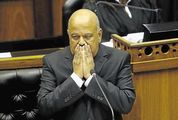
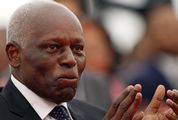

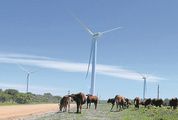


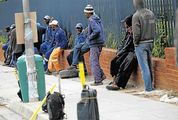
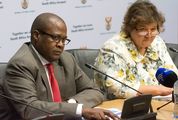
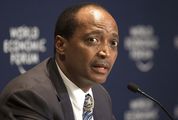










Login OR Join up TO COMMENT